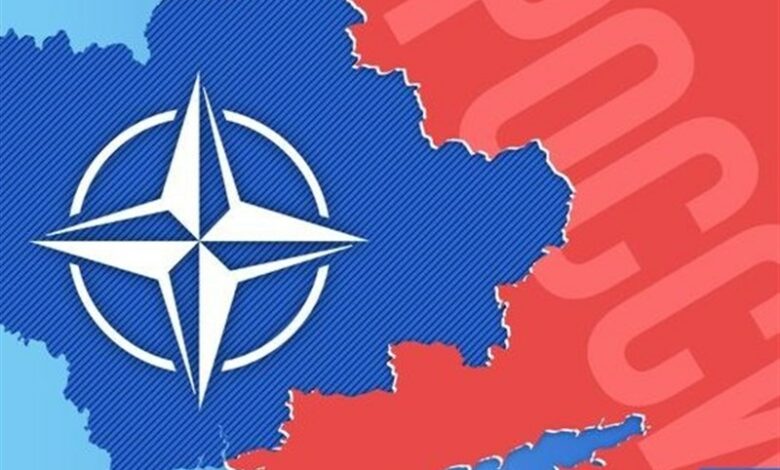NATO’s challenges grow faster as it expands

| While these days NATO proudly mentions the increase of new members and its expansion as a show of success, but a western media evaluated that the expansion of this military alliance causes its challenges to increase faster. |
According to the report of the international group Tasnim news agency, newspaper ” Neue Zürich Zeitung, Germany, wrote in an article entitled “NATO is growing and the challenges of this military alliance are increasing at a faster rate: One of the most unpleasant chapters in the history of NATO is over.” Sweden also becomes a member of this military alliance, and after Turkey, Hungary finally agrees to this plan. At the same time, this alliance has more important tasks than dealing with internal obstacles. They will strengthen in Northern Europe. But in general, this coalition suffers from dangerous gaps.
The author further wrote: In a few days, the blue and yellow flag of one of the new members will be in front of the headquarters. NATO will be raised in Brussels. This does not mean the membership of Ukraine, whose long-term protection from Russian war is likely to be guaranteed only by joining the Western defense alliance. But at least now Sweden as the 32nd member country is under this protective umbrella.
Sweden, like Finland, maintained its traditional policy of neutrality after the Great Russian War. against Ukraine and asked to join it. However, 20 months passed between the approval of the NATO leadership and the acceptance of this country. This situation is more than a bureaucratic flaw.
Hungary has recently been guilty of this, as it took longer than Turkey to prevent Sweden from joining and only allowed the parliament to to vote on it until the last Monday. Unlike Turkey, the Hungarian government has never offered any plausible reasons for its long-standing opposition. An employee close to Viktor Orbán, the prime minister of this country, even claimed, contrary to reality, that joining NATO is not a priority for Sweden. In the rest of Europe, this obstructionism is seen as what it probably already is, an attempt at blackmail.
This article continues: Of course Orban did not benefit from this behavior. Nevertheless, Hungary, which played a pioneering role in toppling communist dictatorships in Eastern Europe in 1989, is now seen as a weak spot in the Western military alliance. Orban has not only waved goodbye to NATO’s core values, but also broadcasts unfiltered Russian propaganda, rejected military aid to neighboring Ukraine, and shown a lack of solidarity by not contributing troops to NATO units in the Baltic “frontline countries.”
It is difficult to reconcile such behavior on the part of Hungary with the issue of membership. Of course, Hungary is not threatened with expulsion because this issue is not foreseen in the NATO constitution. But this country should be aware of the danger that in case of an emergency, it can expect only limited solidarity in return.
Currently, NATO He will suppress his anger and look to the future. The annexation of Sweden is desirable from a strategic point of view: it does not directly border Russia, but its geographical position allows for a better defense of the northeastern flank of the alliance’s territory. The Baltic Sea is currently mostly surrounded by NATO countries. In case of war, supply lines could lead through Sweden to the Baltic and Finland. It also has one of the largest air forces in Europe and an important arms industry. It is a success and a sideshow. The main concern is that the coalition as a whole is not sufficiently prepared for a conflict with Russia. Although Western defense politicians are now openly talking about a Russian attack scenario in the next three to eight years, few governments and countries are acting on it. Many prefer to rest on their laurels.
NATO Secretary General Jens Stoltenberg recently announced that NATO’s European members will contribute two percent of GDP this year for the first time. They will spend their internal defense. This goal, which was decided about ten years ago, will be achieved for the first time in two large countries, France and Germany.
But there is one thing. : The two percent target was set for more peaceful times, but is virtually obsolete today. Given Russia’s war threats, NATO should probably commit to at least three percent, and front-line nations even more. Last year, only Poland and the United States of America were significantly above this level. The cracks in this Western alliance are increasingly visible, a disaster.
End message/
| © | Webangah News Hub has translated this news from the source of Tasnim News Agency |


